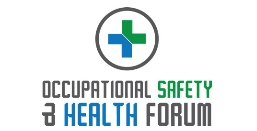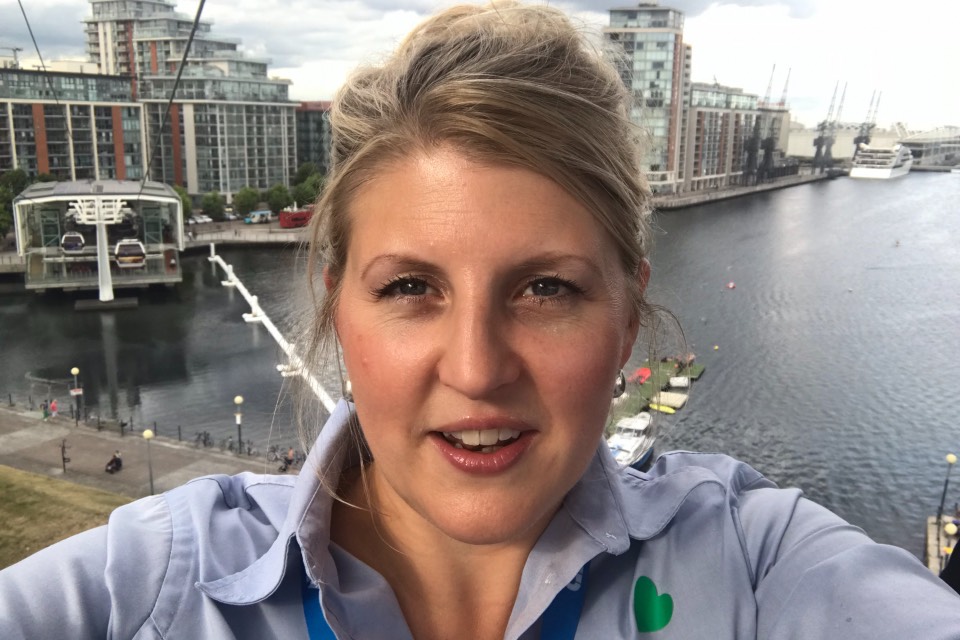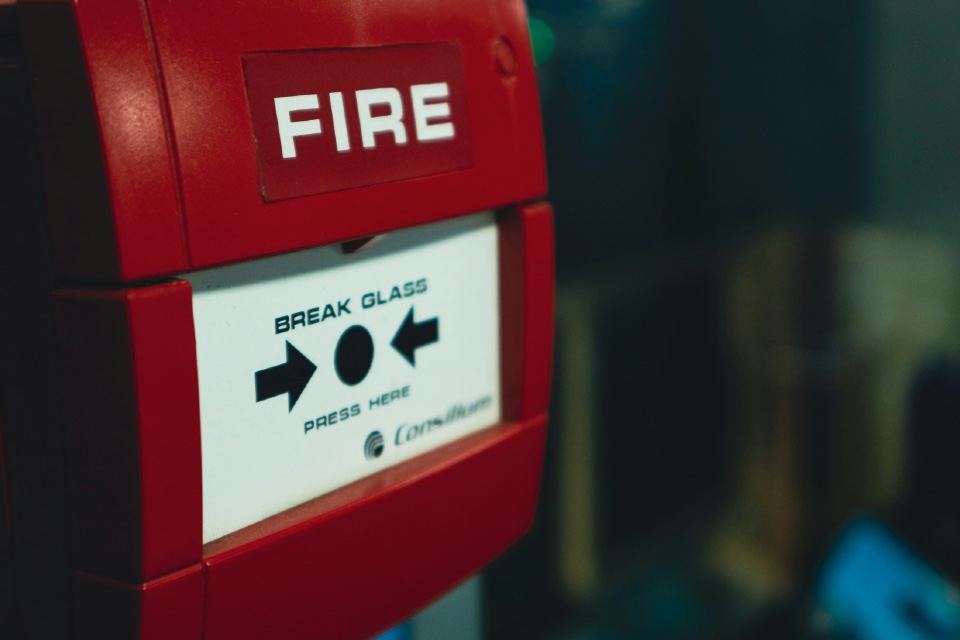In the latest instalment of our health & safety industry executive interview series, we spoke to Melissa Harrison, Events Manager at the Fire Protection Association, about the organisation’s work, the biggest health & safety challenges in the UK, future trends and the importance of maintaining perspective in life…
Q: Tell us about your company, products and services.
A: The Fire Protection Association is the UK’s national fire safety organisation. We largely exist to promote fire safety in the built environment so we work closely with those responsible for building safety including those in construction. Our membership offering provides guidance and resources for a variety of roles, from fire risk assessors, building owners and managers, to architects and facilities managers.
As a not for profit company of fire safety experts, we have an unrivalled reputation for quality and expertise in all aspects of fire protection including research, consultancy, training, publications, risk surveying, fire strategy and auditing. All our services are central to the reputation we’ve built amongst our membership and advocates who trust our independent expertise.
Q: What have been the biggest challenges the Health & Safety industry has faced over the past 12 months?
A: With our fire hat on, the biggest changes for us have been 2 big new pieces of legislation that have been created as a result of the devastating Grenfell Tower fire in 2017. The Building Safety Bill and the Fire Safety Bill. Of course COVID 19 has hindered many standard fire safety measures, such as fire alarm checks, extinguisher maintenance to fire risk assessments and sprinkler system reviews. Being forced to work from home for much of the past 12 months will have undoubtedly changed the way health and safety professionals work but we must not forget the importance of maintaining fire safety standards. To help the sector, we delivered a webinar in the first lockdown, aimed at educating those with fire systems on how to maintain them in this challenging period.
Q: And what have been the biggest opportunities?
A: The biggest opportunities are that never before have the worlds eyes been as open to the dangers of fire as they are at the moment. We have for a long time been discussing the use of combustible materials in construction and this is now being considered as a priority alongside, for example, sustainability and cost. But most importantly, if there is anything to be learned from the last 12 months, its that we must be prepared for a crisis. We must ensure that our businesses and employees are prepared for the worst, should it happen, so that we can return to normal as quickly and safely as possible. Its something we are working to support building owners and managers via our Know Your Building campaign.
Q: What is the biggest priority for the Health & Safety industry in 2021?
A: I think competency is really relevant now more than ever – how can we ensure that people are operating within their own level of competency? Looking at mandatory levels of training which is now commonplace in the health and safety world but not so much in fire. Third party certification – again common for many parts of fire safety such as automatic detection systems but is also likely to become a requirement for fire risk assessors. Then also looking at regulation and enforcement – the HSE as a body is much more of an authority than what exists for fire, we are almost in effect several years behind so moving forward to a more universal acceptance that fire safety needs to infiltrate all areas of a business and for the threat of not doing this to be a clear law breaker should be a priority. The FPA are supporting the sector by providing clear qualification pathways in fire risk assessment, to better equip H&S professionals with responsibility of undertaking risk assessments.
Q: What are the main trends you are expecting to see in the market in 2021?
A: I think there will again be a big focus on testing of materials, clearer accountability for fire safety and a renewed focus on educating. Third party accreditation is something that the market as a whole will need to embrace this coming year. Regardless of legislation changes, it is the FPA’s belief that this is the only way to ensure accountability and credibility.
Q: What technology is going to have the biggest impact on the market this coming year?
A: I would think we possibly would see more utilisation of smart systems so things like being able to monitor systems remotely, being able to operate systems via WIFI and the use of BIM technology to help plan intelligent buildings.
Q: In 2025 we’ll all be talking about…?
A: Ha ha I hope it will not be BREXIT, COVID or home schooling, as I have thoroughly had enough of these three topics. That’s only 4 years away now and it would be nice to think from a sector point of view that all building material that needs replacing will have been done by then and that this will not have been at expense of the leaseholders who did not build the building in the first place.
Q: Which person in, or associated with, the Health & Safety industry would you most like to meet?
A: For me Dame Judith Hackitt, we would love to have a chat with her at the FPA and from a personal perspective it would be nice to see how she feels as a female working in a male dominated industry. I would like to ask her if she feels there is more widespread ethics problem in the construction industry or if it was a case of the government lack of management.
Q: What’s the most surprising thing you’ve learnt about the Health & Safety sector?
A: That it is not actually that large a world – I have only been working in this industry for 8 years but I feel I have met many of the key players in our sector now and that is not the case for many industries. Also if I could have 2 things – the other is that once it is in your blood you do get a little bit hooked, everywhere you go you notice things and when your company lobbies for something that can make a change across the whole of the country effecting many people you feel like your day to day work has contributed to the bigger picture and not just earned the mortgage.
Q: You go to the bar at the Occupational Safety & Health – what’s your tipple of choice?
A: It would be a nice cold glass of something bubbly.
Q: What’s the most exciting thing about your job?
A: Actually meeting so many people – I talk to nearly everyone in our organisation regularly and I have met many of our members and customers it is nice to have the fire community as colleagues.
Q: And what’s the most challenging?
A: It’s a personal one but I am a part time worker (my choice) whilst my son is young to enable me to have the work life balance I would like. This does pose certain issues but the FPA have been incredibly supportive and flexible. You simply cannot do everything you want and sometimes you will miss out that is the nature of the game and once you have got your head around this you focus in on doing the best you can with the time you have.
Q: What’s the best piece of advice you’ve ever been given?
A: As much as I love my job and the fulfilment it brings to my life, my mum once said to me (during a particularly stressful time at a previous employer) you do not see on people’s gravestones “here lies Melissa Harrison she worked really hard for XX” which is a good reminder to never forget about the most important things in life.
The Crown or The Mandalorian?
The Crown!
About Melissa Harrison
Melissa has over 20 years of experience in events. Presently she has served as the Events Manager at the UK’s national fire safety organisation for 7 years. Her role involves coordinating attendance at all external events and organising the FPA hosted events which includes:
• The annual FIRE conference
• Member networking events
• Quarterly industry update seminars
• Monthly webinars
In addition to this Melissa looks after the team of FPA consultants and manages speaker requests.
Previously to this role Melissa worked in education for 10 years organising exhibitions, conferences and training all over the UK. Melissa undertook a degree in hospitality and other employment has included agricultural events Showground Manager, Events Coordinator in a large stately house hotel and working in local government.





